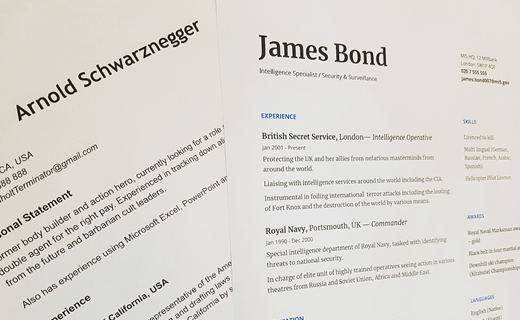- Candidates
- Login
- Set Up Account
- Create a Job Alert
- Search Tools
- Resources
- Employers

My advice about lying on your resume – don’t do it! Simple as that. If you need a little motivation on why not to lie, can I just say online platforms and the worldwide web. You might have searched your name online or maybe you haven’t, but I can assure you employers are. They are Googling your name and finding out what they can about you. Articles you’ve been featured in, records they can find, and connections to others. They are checking your social platforms, particularly Facebook and LinkedIn. LinkedIn can give a complete employment history which allows employers to identify any gaps/red flags or discrepancies that show you’re lying on your resume. Social networks make small industries, like agriculture, that much smaller. Someone knows someone on Facebook that knows you and can easily ask casually about you.
Your best option is to be upfront and honest. But, I know there are some perceived negative situations that people encounter that maybe aren’t so black and white. Here are a few tricks to help you address some of the typical red flags on resumes. Caution – even with these simple tricks you’ll likely be asked for details in an interview. Be truthful. This is just to help get you past resume screeners to get to an interview so that you can sell yourself in person.
What to Do Instead of Lying on Your Resume
Low GPA - Students often ask about including their GPA. My advice is not to put it on your resume unless it is above a 3.0 or higher. If they don’t ask specifically for it to be included, why highlight something you might not be proud of?
Team Effort - Most of us don’t work in completely autonomous roles. However, employers are interested in what you have done. If some of your notable successes were a team effort, acknowledge that, but focus your detail around what you contributed to the team and how that influenced outcomes.
Laid Off or Transition -This can happen to the best of us and we know that finding a job while still employed is preferred. Buy yourself some time by not drawing attention to this transition on your resume, using more vague dates. For example, use year ranges for all employment experiences rather than month/year combinations.
Employment Gaps - Maybe you took time to go back to school or be with your kids, whatever the reason, these gaps become apparent on resumes. Right or wrong, this can be a red flag, but with understanding and background, most employers are accepting. Don’t rely on your resume to do the talking. Use your cover letter. Explain the reason for the gap and sell yourself on what you gained during that time, what you bring to the role, etc.
In general, it is best to be honest because it is the right thing to do, but also because with all of the technology available it is tough to be dishonest. Let us see your ‘honest’ resume. Upload it to the AgCareers.com resume database and showcase yourself to employers across the globe.